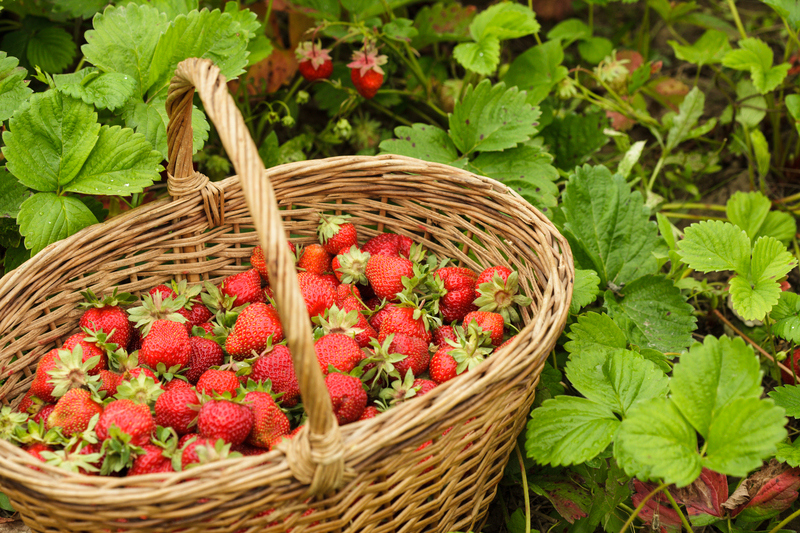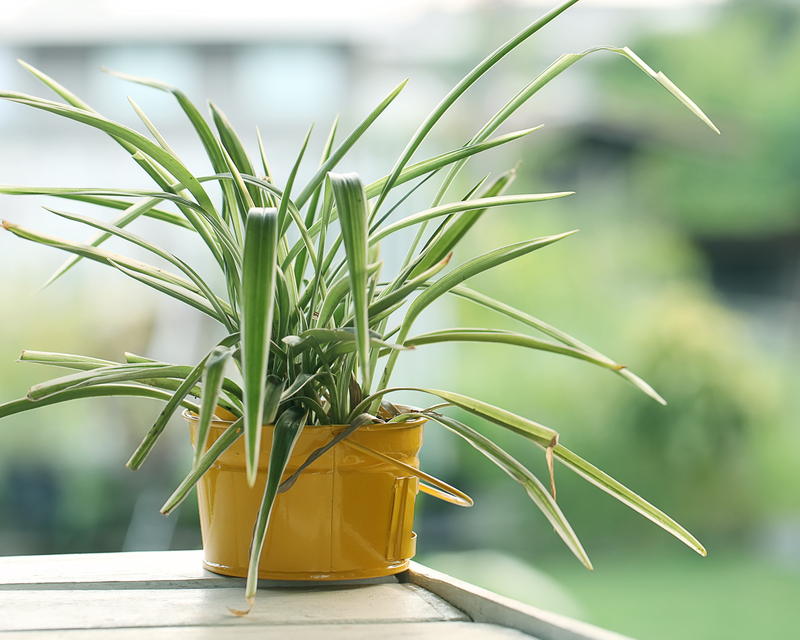The eco-friendly gardening trend: Container gardening
Posted on 16/06/2025
The Eco-Friendly Gardening Trend: Embracing Container Gardening
Eco-friendly gardening is more than just a buzzphrase in the world of horticulture--it's a necessary shift towards sustainable living. As urban populations grow and environmental concerns become increasingly urgent, more people are looking for ways to garden sustainably in small spaces. One solution that has taken root globally is container gardening. This article explores the ins and outs of this green gardening method, covering its benefits, methods, eco-friendly practices, best plant choices, and tips for beginners and seasoned gardeners alike.

What Is Container Gardening?
Container gardening is the practice of growing plants--ranging from flowers and vegetables to herbs and even small shrubs--in pots, baskets, boxes, or other containers rather than planting directly in the ground. This technique is perfectly suited for balconies, patios, rooftops, urban backyards, and any area with limited space, making gardening accessible regardless of where you live.
Key Benefits of Eco-Friendly Container Gardening
- Reduces Environmental Impact: This method minimizes land use and water consumption, contributing to a lower carbon footprint.
- Versatile and Space-Saving: It allows gardening in compact spaces, making fresh greens and blooms available even in apartments.
- Soil Health Control: Using high-quality, organic soil and compost keeps plants healthy and eliminates the risk of soil-borne diseases.
- Less Pest and Weed Infestations: Growing plants in containers limits exposure to destructive pests and invasive weeds.
- Upcycling Opportunities: Old buckets, crates, and jars can be reused as plant containers, reducing waste and promoting sustainability.
Why Is Eco-Friendly Container Gardening So Popular?
As cities become denser and outdoor land becomes more scarce, people are increasingly embracing compact, eco-friendly gardening trends that enable them to grow their own food or flowers in unconventional places. Container gardening fulfills this requirement, letting anyone--no matter their experience or available land--reconnect with nature.
Eco-conscious urban gardeners also love this method for its reduced resource requirements and the ability to use locally sourced or upcycled materials. With more people seeking sustainable living and ways to shrink their carbon footprint, eco-friendly container gardening stands out as the ideal option.
Choosing the Right Containers: Sustainable and Stylish Options
When starting a container garden, choosing planters made from sustainable or upcycled materials is key. The right container will depend on your plant selection, budget, and personal style, but some eco-friendly choices include:
- Terracotta Pots: Classic, natural, and fully biodegradable, these pots offer good air and water exchange for roots.
- Recycled Plastic Pots: Lightweight and durable, often made from post-consumer plastic waste.
- Wooden Crates or Boxes: Upcycled fruit crates or pallets can be turned into rustic planters with a bit of DIY flair.
- Metal Tins or Buckets: Cleaned old food tins or paint buckets can make quirky, durable containers.
- Fabric Grow Bags: Made from recycled fabric, these collapsible bags are breathable, reusable, and space-efficient.
- Ceramic Pots: Durable and often aesthetically pleasing, but choose lead-free glaze for safety.
Before planting, ensure your containers have adequate drainage holes to prevent root rot and allow excess water to escape. Sustainable gardening starts with the right foundation!
Eco-Friendly Soil and Amendments
The health of your container garden depends on the quality of your soil. Opt for organic potting mixes that are peat-free and made from renewable resources. Using compost--either bought or homemade--adds nutrients naturally and reduces the need for synthetic fertilizers.
- Peat-Free Potting Mix: Peat extraction harms wetlands and contributes to climate change. Look for peat-free blends using coconut coir, composted bark, or organic matter.
- Homemade Compost: Turn kitchen scraps and yard waste into black gold. Compost improves soil texture and supplies essential nutrients.
- Worm Castings: An excellent organic fertilizer, worm casting tea enriches your containers and supports beneficial soil microbes.
- Biochar: Adding biochar helps sequester carbon, improve moisture retention, and boost soil fertility.
Tip: Feed container plants with natural, slow-release fertilizers like kelp meal, fish emulsion, or diluted compost tea for healthy, vigorous growth.
The Best Plants for Eco-Friendly Container Gardening
Sustainable container gardening supports a wide range of plants, but certain varieties are especially well-suited for eco-minded growers. Here are some top choices:
Edible Plants and Vegetables
- Leafy Greens: Spinach, lettuce, arugula, kale, and Swiss chard thrive in containers and can be harvested repeatedly.
- Herbs: Basil, mint, oregano, chives, parsley, cilantro, and thyme flourish in pots by a sunny kitchen window.
- Compact Tomatoes: Look for dwarf or patio varieties, which produce abundant fruit in small spaces.
- Peppers: Sweet and chili peppers adapt well to containers and bring vibrant color to your garden.
- Radishes and Carrots: Choose round or "mini" varieties perfect for shallow pots.
- Strawberries: These berries trail beautifully from hanging baskets or tower planters.
Ornamental Plants
- Native Wildflowers: Attract pollinators and require less water and maintenance.
- Annuals and Perennials: Marigolds, zinnias, pansies, and petunias add long-lasting color.
- Succulents and Cacti: Ideal for eco-minded gardeners due to low water demands and striking appearance.
Dwarf Fruit Trees and Bushes
Even some miniature fruit trees--such as dwarf apples, figs, or blueberries--can thrive in sizable containers on a sunny patio. These not only provide homegrown fruit but also support local wildlife.
Water Conservation in Container Gardening
Water-wise gardening is an essential part of creating a truly eco-friendly container garden. Fortunately, containers make managing water use easier. Here are several ways to minimize water waste:
- Collect Rainwater: Use a rain barrel to capture run-off from your roof for watering your plants.
- Mulch: Adding a layer of straw, bark, or shredded leaves reduces evaporation and keeps roots cool.
- Self-Watering Pots: Consider using planters with built-in reservoirs that provide consistent moisture without excess runoff.
- Drip Irrigation: Install a drip system for efficient, targeted watering or use recycled water from household use (when appropriate).
- Water During Cooler Hours: Water early in the morning or late in the afternoon to minimize evaporation.
Tip: Group containers with similar moisture needs together for more efficient watering and to simplify maintenance.
Reducing Waste: Upcycling and Repurposing Containers
One of the greenest aspects of container gardening is the ability to repurpose everyday objects as planters. This not only reduces landfill waste, it gives your garden unique character. Consider turning the following into eco-chic planters:
- Old boots or shoes
- Teapots, mugs, or cups
- Worn-out colanders or strainers
- Drawers and wooden boxes
- Plastic or glass bottles cut into small pots
Before using any upcycled material, ensure it is safe for plants (avoid containers made from treated wood or materials that may leach chemicals). Sustainable gardening is as much about creativity as it is conservation!
Common Challenges and Eco-Friendly Solutions
Even in containers, gardeners will sometimes face issues like pests, diseases, or nutrient imbalances. Here's how to keep your container garden thriving without resorting to chemical pesticides or synthetic inputs:
- Natural Pest Control: Use neem oil, insecticidal soap, or introduce beneficial insects like ladybugs and lacewings.
- Companion Planting: Grow plants that naturally deter pests beside susceptible crops--marigolds with tomatoes, basil with peppers, etc.
- Rotate Crops: Change up your container crops each season to prevent disease buildup and maintain soil health.
- Adequate Airflow: Arrange pots to ensure good air circulation and reduce the risk of fungal diseases.
With patience and eco-conscious practices, your sustainable container garden can stay healthy and productive year-round!
How to Start Your Own Eco-Friendly Container Garden
Ready to join the green gardening revolution? Follow these basic steps for beginner-friendly eco-friendly container gardening:
- Choose the Right Location: Most plants require at least 6 hours of sunlight a day. A south-facing balcony or window is ideal.
- Select Containers: Pick sizes and materials suited to your chosen plants and make sure they have drainage holes.
- Use Eco-Friendly Potting Soil: Fill pots with peat-free soil and compost or worm castings.
- Plan Your Planting: Select plants based on your light, space, and climate. Mix edibles and ornamentals for beauty and function.
- Plant Properly: Leave enough space for each plant and water them gently after planting.
- Maintain Regular Care: Water plants as needed, feed with organic fertilizers, and check for pests regularly.
- Harvest and Enjoy: Enjoy fresh herbs, vegetables, or flowers from your own sustainable garden.
Tip: Start small--master a few containers, then expand as your confidence grows!

Eco-Friendly Gardening with Kids and Families
Container gardening is an excellent way to introduce children and families to the joys of sustainable cultivation. Kids love planting seeds, watching sprouts grow, and harvesting homegrown food. It teaches important life skills such as responsibility, patience, and care for the environment. Use colorful, upcycled pots or create a themed mini-garden--like a "pizza garden" with tomatoes, oregano, and basil--to make the experience fun and educational!
The Future of Gardening: Sustainable Container Trends
The eco-friendly container gardening trend is evolving rapidly. Innovations include modular vertical gardens, smart self-watering pots, and communal rooftop gardens that share resources and produce. As more people realize the value of green spaces--for mental well-being, biodiversity, and environmental resilience--eco-friendly container gardening will only become more popular and essential.
Join the Eco-Friendly Gardening Movement
Whether you live in a bustling city or a rural setting, eco-friendly container gardening empowers anyone to grow fresh, healthy plants whilst minimizing their environmental impact. By making smart choices--like using sustainable containers, conserving water, and choosing organic methods--you not only cultivate beauty and food, you also help heal the planet, one pot at a time.
Start your own sustainable container garden today and be part of a greener future!
Latest Posts
Green Walls and Vertical Gardens: Beauty Reimagined
Recycling Organics into Lush, Growing Soil
The Magical World of Herb Gardening

